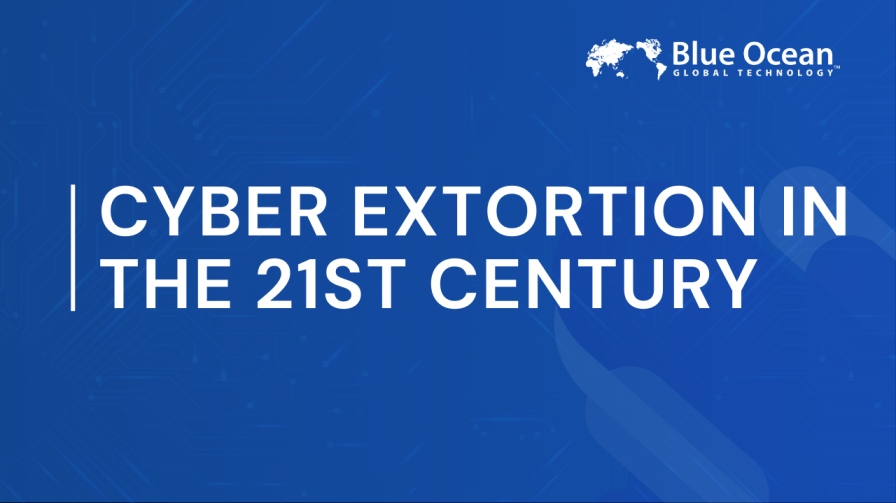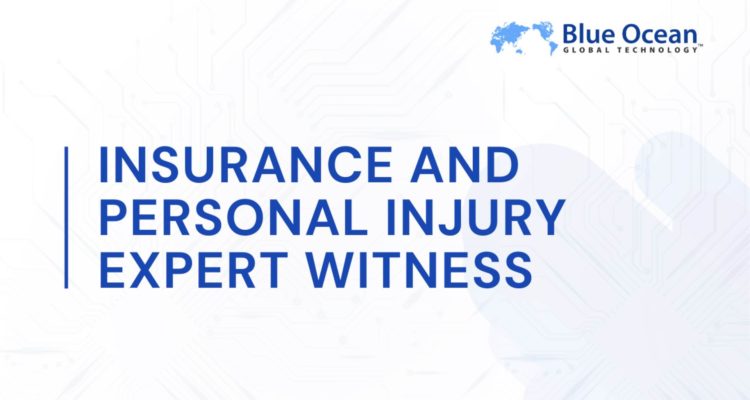- Cyber extortion is a rising cybercrime involving illegal access to sensitive data for financial gain.
- Encompassing cyberthreats, ransomware attacks, DDoS assault are aimed at coercing victims into paying ransoms.
- Impacts include financial losses, reputational damage, and operational risks.
- Mitigating measures include strong authentication, firewall updates, and strict adherence to global cybersecurity laws.
- Cultivating a vigilant culture is essential for defending against evolving cyber threats and protecting business integrity.
In the ever-evolving landscape of cyber crimes, especially, extortion online has become relentlessly casual. The spectrum of cybercrimes, encompassing a diverse array of illicit activities, has escalated to increasingly severe and unlawful extremes. Extortion online, more commonly known as “Cyber Extortion” occurs when a hacker illegally accesses an organization’s confidential data. Such data is illegally procured by a hacker to magnify their agenda further. The demand of coercing money from you in return for the stolen sensitive information is what the prime agenda is. However, some attackers do not follow through on their promise of letting you relinquish the stolen information. Thus, an organization may pay the extortionist but not get the expected results.
The Relevance of Extortion Online in the Digital Era
The avowed history of cybercrime began in 1962, when Allen Scherr launched a cyber attack. Such an attack was statistically planned against the Massachusetts Institute of Technology (MIT) computer networks. The root of the crime arose from stealing passwords from MIT’s database via punch card. That is when the digital world hit the “groundbreaking” initiation of how cybercrimes came into existence.

In the world of prima donna individuals, the practice of performing a cybercrime has become relatively common. Cyber extortion is an illegal misconduct practiced by an individual who holds crucial data in his possession. The person who does this digital crime is known as a “cyber extortionist”. In every case of extortion online, the health of the victim takes an adverse turn when posed with such a situation. As a result, nowadays, it can be understood that cyber extortion is one of the most cruel forms of cybercrime.
Common Types of Cyber Extortion
Ransomware Attacks (Digital Hostage-Taking)

Ransomware is a type of digital malware that is designed to deny a user access to files on a computer. Through the encryption of files, a hacker would demand a ransom payment for the description key. Then, cyberattackers would place the organization in a critically placed position jeopardizing the confidential data. The last resort to regain access to the stolen files would be paying the ransom which would be prominent.
Denial-of-Service (DDoS) Attacks (Internet Traffic Jam)
A denial-of-service (DDoS) attack is one such attack initiated by a cyberattacker used to steal personally identifiable information (PII). Moreover, such information is ascertained combined with other data where it could be an identification (I.D.) of the user. Ordinarily, cyberattackers can use DOS, a form of attack by putting a great deal of traffic on the victim’s server. Such a DOS can last for months, causing the distributed system to ultimately crash. Such information extorted by the attacker could be misused to further expose the victim and meld with greater threats.
Email Extortion (Digital Blackmail)
Extortion online prominently operates via email, wherein the attacker sends a message containing the sensitive information of the victim. For such an operative cyber extortion, the personal or sensitive information has to be of high value to the individual. Following the cyber act, the extortionist demands the ransom to be paid by the victim. Additionally, the attacker threatens to release the victim’s personal information to the public domain if not met with the ransom demand.
Unleash the Vast Potential of Our Experts!
Book your consultancy session at Blue Ocean Global Technology today!
The Impact of Extortion Online
The Individual Impact
The soaring impact of extortion online has resulted in the implications of an individual’s scrutiny. From understanding the motivation behind cyber attacks, an attacker poses a threat to an individual’s:
-
- social,
- mental, and
- emotional health.
The agenda of these cyber extortionists can range on a spectrum of personal motivations to causing malicious harm to victims. It ranges from victimizing someone by misusing their identification (I.D.) for personal gain to targeting financial components.
The Business Impact
With the ever-growing legal implications of business scrutiny, financial losses, reputational damages, and operational disruptions are common outcomes. The regulatory consequences of such a cyber attack on an organization can be termed as the potential for financial gain. Furthermore, the anonymous nature of these cyber extortionists has reached a level that can cause harm to the registered investors. Given that a firm, legally, is its entity, yet, the harm can be multiplied with respect to the parties involved.

Responding to Cyber Extortion
Defending the risks against rising tide of extortion online demands a business to prioritize cyber security by taking proactive measures. It is imperative to understand that a cyber attack not only jeopardizes public’s safety but also national and economic security. Thus, being aware of the country-specific laws against cyber crimes is as vital as putting up cybersecurity measures. Furthermore, certain active steps to mitigate the risks of extortion online are listed below:
Robust Credentials
Individuals and businesses must use a spectrum of cyber security measures to protect their databases. Such preventive measures can be targeted from various unprotected sources, for instance, spyware or malware. Thus, using a strong password for the credentials login can be one way to protect yourself from being extorted.

Double-Authentication Access
Having control access to data and systems can ensure authorized control by the designated user, for instance;
- controlling access to physical premises of the computer networks,
- restricting access to unauthorized users,
- limiting access to data and applications through controls,
- restrict what can be copied and saved to storage devices,
- limit sending and receiving of certain types of email attachments, et cetera.
Firewall Extension
Firewalls are effectively gatekeepers between your computer and the internet. Such acts as a barrier to prevent the malicious spread of threats such as viruses and malware. It’s vital to regularly update the software of the installed firewall for potential and maximal utilization ensuring server security. One of the most common firewall configuration set-ups is to add global rules filtering incoming traffic for protocols other than:

Conclusion
The rise in extortion online this century has heightened awareness of mitigating risks and avoiding the scrutiny of vulnerabilities. In the sophisticated and complex dynamic of the business, a variety of cyber security solutions can mitigate cyber risks. Having cyber protection in all horizons in an organization towards its assets and employees is critical to the business world. As we navigate the perilous landscape bolstering cybersecurity and fostering a culture of vigilance has become paramount.
Frequently Asked Questions
1. How do cyber extortionists usually operate?
Cyber extortionists take advantage of various methods such as ransomware attacks, DDoS assaults, and email extortion to expose confidential data. Leveraging technological tactics is how coercing a victim into paying a ransom has become a trend in the cybercrime era.
2. What legal implications are involved in cyber extortion cases?
Ordinarily, cyber extortion is illegal in most jurisdictions. Victims must be aware of the country-vide law enforcement agencies and methods to investigate the incident. Furthermore, the prosecution of these cyber extortionists in compliance with the legal requirements is crucial throughout the process.
Elevate Your Case with Our Personal & Insurance Claim Expert Witness Services!
Contact our global team today to get the assistance you need to help mitigate any cyber threats.














Comments are closed.